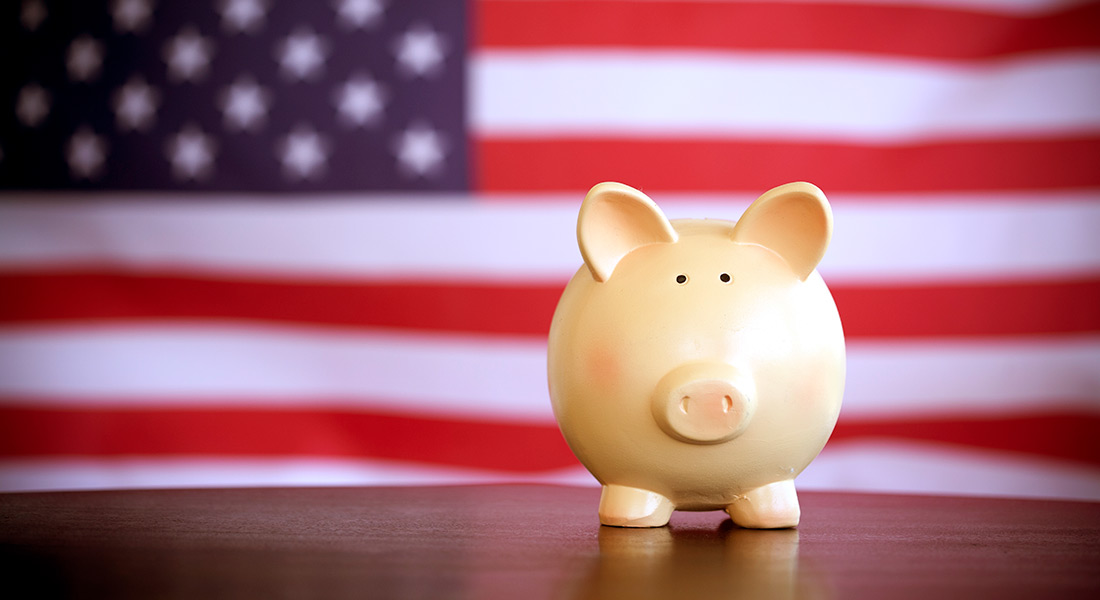Estimated reading time: 5 minutes
Military veterans like you possess naturally well-suited traits for the business world. These traits include leadership, commitment, teamwork, and the ability to thrive under pressure. So, it is no surprise that veteran-owned businesses have high success rates, even when their founders have little or no business experience. Part of maintaining business success is having access to capital at any given time to boost cash flow, cover the cost of business expenses, consolidate debt, and pursue growth opportunities. That is where business loans for veterans come into play.
If you are a veteran business owner in the United States, you have most likely applied for a loan at one time or another. Unfortunately, you are not alone if you hit a roadblock when trying to obtain funding. Veteran entrepreneurs typically have less access to capital than non-veteran entrepreneurs. The reason is military personnel are busy serving our country, and, as a result, they can not build solid credit profiles. This Balboa Capital blog article is for you if you are looking for information about the various available loan options. It explains how to get a veteran business loan.
Gather up your business’s paperwork.
No matter what type of lender you choose, certain financial and business documents will be required to submit your loan application. Having copies of everything organized can help accelerate the application process and save you the hassle of gathering additional documentation and paperwork. You will need financial statements and accounting records for the past two years and basic information such as your business name, Federal Tax ID number, legal documents, and small business insurance policy.
Review your veteran business loan options.
Many veteran business owners assume that the Department of Veteran Affairs provides VA business loans, but this is not the case. Instead, the Small Business Administration (SBA) works nationwide with designated lenders that extend veterans’ loans. There are several different loan options available for veterans. Each type of loan has its pros and cons. So, before you choose one, you should become familiar with each option to make the best decision. The following are the most popular types of business loans for veterans.
SBA loans for veterans.
Participating SBA lenders extend business loans for veterans under the SBA Express program and the SBA 7(a) program. The SBA does not issue loans; it guarantees them. For example, the SBA guarantees 85% of a loan of up to $150,000 and 75% of a loan that exceeds $150,000. The SBA also offers working capital loans of up to $500,000 and microloans of up to $50,000.
If you need a loan to cover the costs of fixed assets or soft costs, take a look at the SBA 504 loan program. This loan is available in amounts up to $5 million and the repayment periods range from 10 to 20 years. To apply for an SBA loan, search online for an SBA lender in your city or town.
Lastly, the SBA has long-supported veteran business owners by providing them access to small business workshops and training and business development opportunities via government contracts.
Unsecured business loans.
Unsecured business loans for veterans do not require collateral, reducing the borrower’s risk. However, an unsecured loan will always have a higher interest rate than a secured one. Nevertheless, unsecured loans are popular among veteran entrepreneurs because they can be obtained quickly, even with a less-than-stellar credit rating.
Unsecured loans are available from most lenders, and the loan amounts range between $3,000 and $250,000. In addition, payback terms for unsecured loans are much shorter than those for traditional loans. You can expect to see repayment periods between 3 and 24 months.
Business cash advance for veterans.
A business cash advance, also known as a merchant cash advance, is not an actual loan. Instead, it is a solution that helps address businesses’ short-term cash flow needs with a high amount of monthly transactions. The advance is a lump sum of cash paid back with an agreed-upon percentage of future credit card and debit card sales. Cash advances typically range from $5,000 to $250,000.
A business cash advance might come in handy if you are a veteran business owner that runs a coffee house, restaurant, retail shop, or specialty store. These businesses usually have a constant flow of customers who pay with credit and debit cards.
Working capital loans for veterans.
Working capital loans are perfect for filling cash-flow gaps and financing your small business’s daily operations. It is worth noting that working capital loans have shorter repayment periods. You can get a working capital loan to stock up on inventory, pay your employees, increase your advertising budget, and just about any other operational need. Most lenders offer working capital loans of up to $250,000.
Business line of credit for veterans.
A business line of credit is a predetermined amount of growth capital that you can access and repay with interest whenever your veteran-owned business needs it. With a business line of credit, you will only be required to repay when you draw from your credit line. For example, let us say you have a $200,000 credit line and draw $20,000. In this case, you will pay back the $20,000, plus interest, and nothing more. The balance of $180,000 stays put and is interest-free.
Conclusion.
Deciding to get a loan for your veteran-owned business is an important decision. However, you should not rush the process and go with the first lender you find. Instead, sit back, research the various options, and ensure you get the business loan interest rate and repayment term that work with your budget.
Balboa Capital, a Division of Ameris Bank, is not affiliated with nor endorses the Department of Veteran Affairs or the Small Business Administration. The opinions voiced in this material are for general information only and are not intended to provide specific advice or recommendations for any individual.
